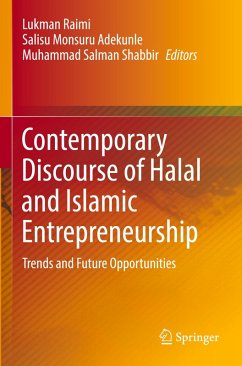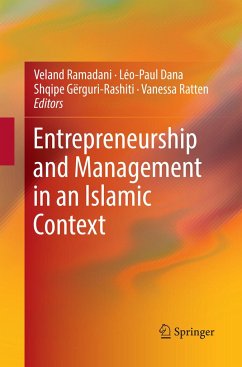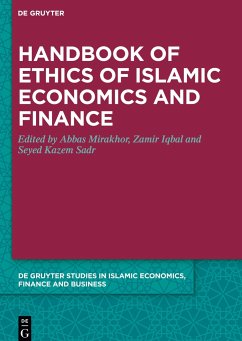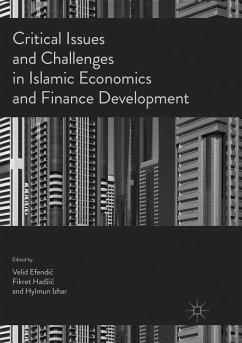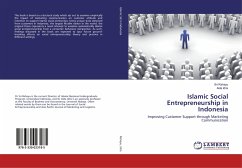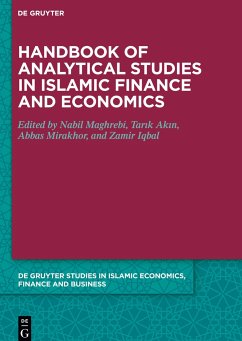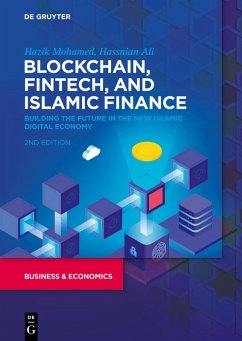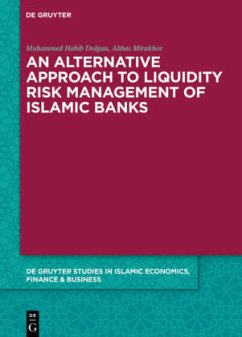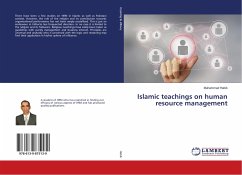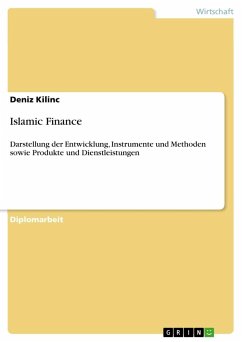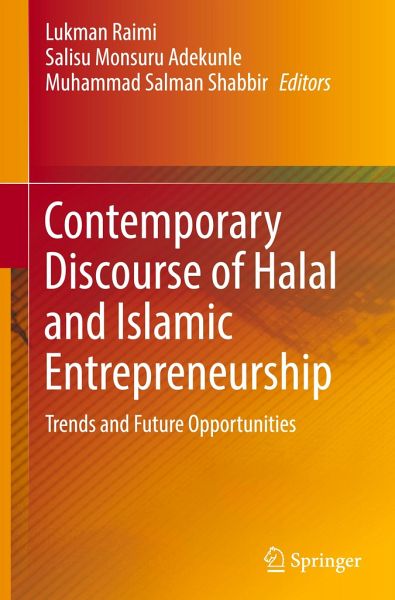
Contemporary Discourse of Halal and Islamic Entrepreneurship
Trends and Future Opportunities
Herausgegeben: Raimi, Lukman; Adekunle, Salisu Monsuru; Shabbir, Muhammad Salman

PAYBACK Punkte
57 °P sammeln!
This book serves as a valuable resource for Islamic entrepreneurship researchers, Halal scholars, Islamic finance professionals, Halal advocates, and Halal business model consultants in the fast-changing global economy. The thematic focus is not only on Islamic and halal entrepreneurship but also on halal production and consumption, ethics and impact investing in Islamic entrepreneurship, Shariah principles guiding business model innovation and utilisation of disruptive technologies (such as crowdfunding for startups, bitcoin, digital ventures, cryptocurrency, blockchain, among others), Islami...
This book serves as a valuable resource for Islamic entrepreneurship researchers, Halal scholars, Islamic finance professionals, Halal advocates, and Halal business model consultants in the fast-changing global economy. The thematic focus is not only on Islamic and halal entrepreneurship but also on halal production and consumption, ethics and impact investing in Islamic entrepreneurship, Shariah principles guiding business model innovation and utilisation of disruptive technologies (such as crowdfunding for startups, bitcoin, digital ventures, cryptocurrency, blockchain, among others), Islamic entrepreneurship and SDGs, halalisation and sustainability issues, and emergence of Islamic-Fintech in Muslim majority nations and nations with plural economic systems, including the interface of Islamic and halal entrepreneurship with science, technology, engineering, and mathematics (STEM).
At the moment, the working knowledge about Islamic and halal entrepreneurship is at its infancy among Islamic finance professionals, halal consultants, academic researchers, and students nursing the ambition of going into these two fields. Universities, Islamic training academies, and centres are also ill equipped to enrich Islamic and halal curricula with principles and conventional models. One of the proactive ways of breaking financial exclusion, social inequality, and social exclusion caused by apathy and avoidance of Riba, Maysir, and Gharar is by recognising, embracing, and promoting Islamic and halal entrepreneurship among the excluded Muslims and lovers of ethical business models. Overall, this book aims to promote better understanding of Islamic and Halal entrepreneurship in order to assist academics, researchers, practitioners, consultants, and policymakers to improve the growth of Islamic startups and small and medium enterprises (SMEs) by improving social inclusion and financial inclusion and accelerating the attainment of SDG 8 and SDG12.
At the moment, the working knowledge about Islamic and halal entrepreneurship is at its infancy among Islamic finance professionals, halal consultants, academic researchers, and students nursing the ambition of going into these two fields. Universities, Islamic training academies, and centres are also ill equipped to enrich Islamic and halal curricula with principles and conventional models. One of the proactive ways of breaking financial exclusion, social inequality, and social exclusion caused by apathy and avoidance of Riba, Maysir, and Gharar is by recognising, embracing, and promoting Islamic and halal entrepreneurship among the excluded Muslims and lovers of ethical business models. Overall, this book aims to promote better understanding of Islamic and Halal entrepreneurship in order to assist academics, researchers, practitioners, consultants, and policymakers to improve the growth of Islamic startups and small and medium enterprises (SMEs) by improving social inclusion and financial inclusion and accelerating the attainment of SDG 8 and SDG12.



